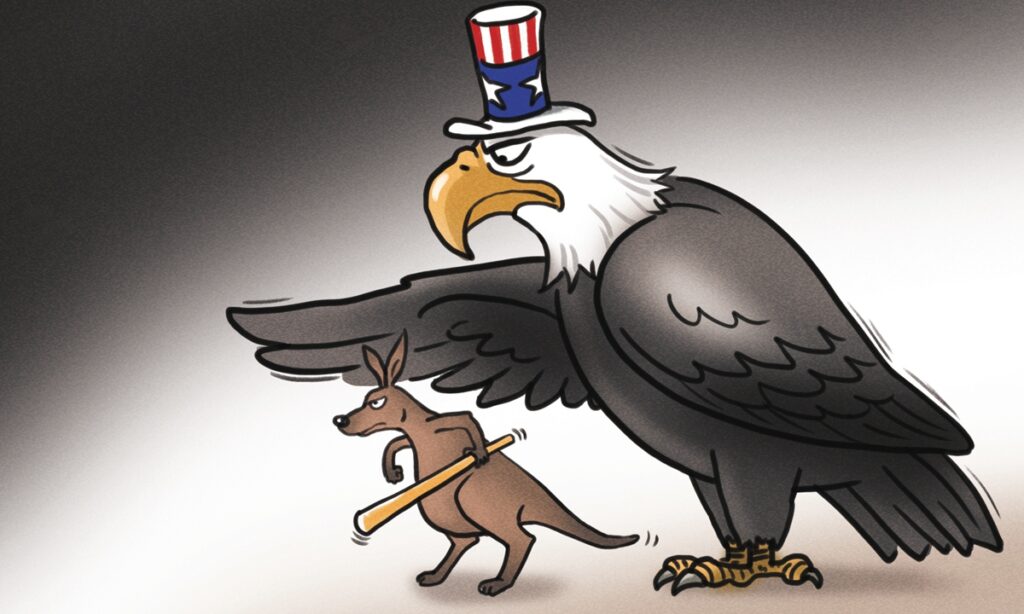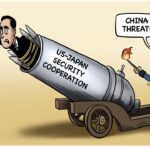The Lowy Institute, a Sydney-based think tank, released the Asia Power Index for 2023 on Sunday. Created in 2018, the index measures powers based on 133 indicators across eight core themes. Since the index was launched in 2018, the US, China, Japan, India, and Russia, in that order, have been the top five powerful nations.
Most countries saw a decline in their overall scores due to the continued impact of the COVID-19 pandemic last year. The US lost 1.5 points, while Japan lost 1.4 points. But China saw the biggest drop in score, dropping 2.1 points relative to 2021, which is also as the largest drop in this edition.
The US displaced China as the top-ranked country for economic capability. Susannah Patton, the project lead for the index, said China’s score had dipped across almost every indicator as the country’s connections with the rest of Asia declined “sharply.”
However, China’s status and strength could not be influenced by some measures taken in a short period of time. It is often said that Rome was not built in a day. The rise of China is a long-term process, and it is impossible for it to cause drastic changes because of what happened in a year, Lü Xiang, a research fellow at the Chinese Academy of Social Sciences, indicated.
Now, Western media, politicians and think tanks, including Lowy, are talking about China’s anti-epidemic policies as if they are trying to smear China to find an excuse for their own anti-epidemic failures. They have turned a blind eye to US’ mishandling of the epidemic, which caused social turmoil and severe economic damage. By contrast, once it comes to China’s issues, they will endlessly exaggerate or even distort facts. But the facts prove that China’s anti-epidemic policy is very successful, and it can even be said to be the most successful example in the world.
As a pivotal economic force in the Asia-Pacific region, China played a very crucial role in sustaining the Asia-Pacific economy and even the world economy in the fight against the epidemic. This includes providing necessary supplies and vaccines to other countries during the pandemic.
Chen Hong, director of the Australian Studies Center at East China Normal University, pointed out that Lowy’s release of the report at this time will play a misleading role in world public opinion. Chen has spotted a modus operandi in the anti-China campaign in some Western countries, in which more often than not, anti-China political forces or interest groups would feed misinformation or some unsubstantiated “leads” to the media, which would, in turn, hype it up. During this process, some think tanks would play their part in due course to act in disguise as academic authorities. Sometimes they would conduct surveys with misleading results to influence public opinion. Chen said, adding that Lowy Institute, is an influential think tank and should cling to academic impartiality and independent judgment rather than being affected by political pressures.
In fact, the US’ economic data is not performing as well as the country had hoped. Inflation, interest rate hikes, and recession can be said to be high-frequency words for the US economy in 2022.
Patton did not forget to appeal to Washington in the article titled “China’s Reopening, America’s Challenge” published in the Straits Times, saying that the year ahead promises to be an inflection point for China’s power in Asia. The Biden administration will need to adapt its strategy to compete with China in 2023.
Australia’s Lowy Institute represents one of the most loyal American allies. For them, the fear is that if the US goes down, they will go down with it.
But in the long run, with the gradual weakening of US influence in the Asia-Pacific region, there is no doubt that China’s role in the Asia-Pacific region will increase. Thus, Lowy’s conclusion is more like a wish. The forces represented by Lowy think they can benefit from relying on the US. This is a very unhealthy “zero-sum game” mentality.
The current Australian government has actually begun to reflect on the unfriendly China-Australia relationship. However, some politicians and think tanks in Australia always believe that if they can stand on the side of the US, they will benefit in the end. This is very unfavorable for a country like Australia to achieve a stable external environment.
“Lowy, as a prominent think tank, needs to realize that academic institutions should maintain academic independence, not serve interest groups or the geopolitical strategy of a certain superpower. For the recent Lowy Power Index, it is no longer just a matter of taking sides. Think tanks should not instrumentalize themselves to become a tool for anti-China forces, which would taint their academic reputation,” Chen said.
(Global Times)




